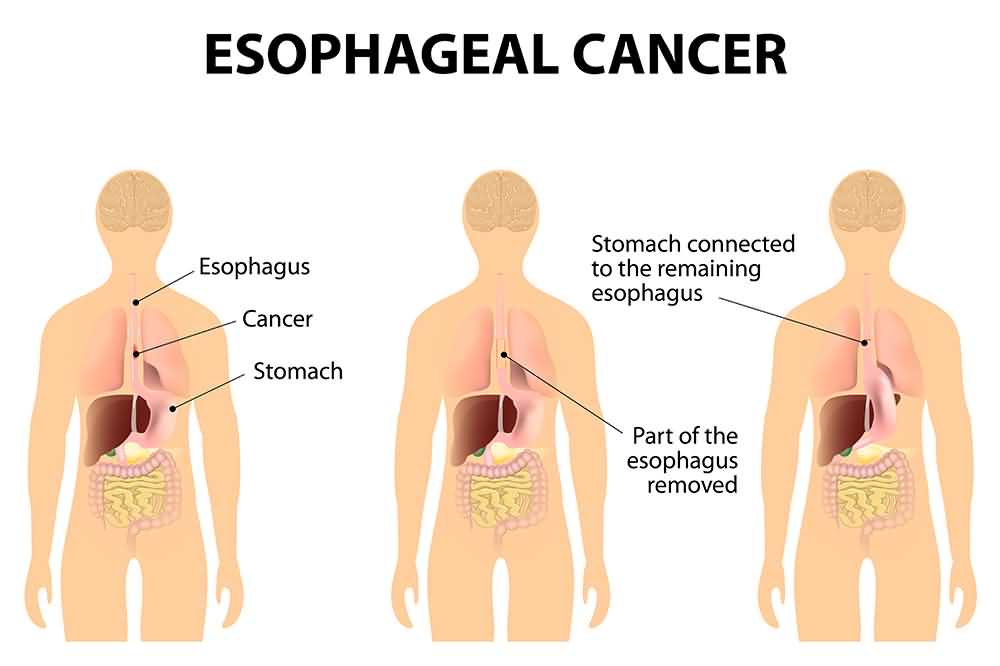Esophageal Cancer Surgery in Czech Republic
Find the best clinics for Esophageal Cancer Surgery in Czech Republic
No clinics available
India offers the best prices Worldwide
Price: $ 4,140

WHY US?
At Medijump, we're making medical easy. You can search, compare, discuss, and book your medical all in one place. We open the door to the best medical providers worldwide, saving you time and energy along the way, and it's all for FREE, no hidden fees, and no price markups guaranteed. So what are you waiting for?

Free

Best Price

Widest Selection

Risk-Free
What you need to know about Esophageal Cancer Surgery in Czech Republic

Esophageal cancer occurs anywhere along the esophagus (the long and hollow tube that runs from the throat to the stomach). Surgery for esophageal cancer is often used to try to remove cancer and some of the normal tissue that surrounds it for some earlier stage cancers. In some cases, the surgery may be combined with other types of treatment, such as radiation therapy and/or chemotherapy.
What does a Esophageal Cancer Surgery Procedure Involve?
Esophageal cancer surgery is performed under general anesthesia. The surgery is done using the standard open technique in which your surgeon makes one large incision in the chest or abdomen, or minimally invasive where your surgeon makes several small incisions. During the surgery, your surgeon will try to remove the tumor and some healthy tissue that surrounds it or removes some or most of the esophagus (esophagectomy). In some cases, a small upper portion of your stomach is removed as well (esophagogastrectomy).
How Long Should I Stay in Czech Republic for a Esophageal Cancer Surgery Procedure?
You will be staying 7 to 10 days in the hospital following the surgery, but plan to stay in Czech Republic for 10 to 14 more days after you are discharged from the hospital. During your stay in the country, you will be under a close monitor of your surgeon. Stitches are usually removed within 14 days.
What's the Recovery Time for Esophageal Cancer Surgery Procedures in Czech Republic?
Esophageal cancer surgery is not a simple procedure, therefore, it may require long recovery time. You should not do any strenuous activity (including intense exercise and heavy lifting) for about 8 weeks after the surgery and you will need tube feeding (enteral nutrition) for 4 to 6 weeks to ensure adequate nutrition. Talk to your doctor about your recovery timeline, including when you can return to work and resume your daily activities.
What sort of Aftercare is Required for Esophageal Cancer Surgery Procedures in Czech Republic?
Since your stomach size is likely reduced after the surgery, you need to adjust your diet and eat more frequently in smaller quantities. Your doctor may recommend follow-up care to prevent complications, including lung therapy, nutritional assessments, pain management, and psychosocial care. You also need to attend regular follow-up checkups to make sure the tumor has not returned and there are no new tumor growths.
What's the Success Rate of Esophageal Cancer Surgery Procedures in Czech Republic?
Surgery for esophageal cancer is known to be highly successful. Patients who undergo surgery are more likely to survive long term than those who did not. However, like all serious operations, esophageal cancer surgery has some side effects and risks, including lung complications, voice changes, infection, bleeding, cough, leakage from the surgical connection of the stomach and the esophagus, acid or bile reflux, dysphagia, and reaction to anesthesia.
Are there Alternatives to Esophageal Cancer Surgery Procedures in Czech Republic?
In some cases, your doctor may recommend chemotherapy (to kill cancer cells using drugs) or radiation therapy (to kill cancer cells using high-powered X-ray beams) along with or instead of surgery. Make sure to discuss with your doctor, the best option for you as well as the risk and benefit of each procedure.
What Should You Expect Before and After the Procedure
Esophageal cancer causes symptoms such as dysphagia, unintentional weight loss, chest pain, heartburn, coughing, and hoarseness. It may interfere with your ability to perform your daily activities and it can lead to dangerous complications. After the surgery, some of your symptoms should be relieved and your quality of life will be improved significantly.
Whilst the information presented here has been accurately sourced and verified by a medical professional for its accuracy, it is still advised to consult with your doctor before pursuing a medical treatment at one of the listed medical providers
No Time?
Tell us what you're looking for and we'll reachout to the top clinics all at once
Enquire Now

Popular Procedures in Czech Republic
Prices Start From $131

Prices Start From $47

Recommended Medical Centers in Czech Republic for procedures similar to Esophageal Cancer Surgery

- Interpreter services
- Translation service
- Religious facilities
- Medical records transfer
- Medical travel insurance
- Health insurance coordination
- TV in the room
- Safe in the room
- Phone in the room
- Private rooms for patients available

- Interpreter services
- Translation service
- Religious facilities
- Medical records transfer
- Medical travel insurance
- Health insurance coordination
- TV in the room
- Safe in the room
- Phone in the room
- Private rooms for patients available

- Interpreter services
- Translation service
- Religious facilities
- Medical records transfer
- Medical travel insurance
- Health insurance coordination
- TV in the room
- Safe in the room
- Phone in the room
- Private rooms for patients available
